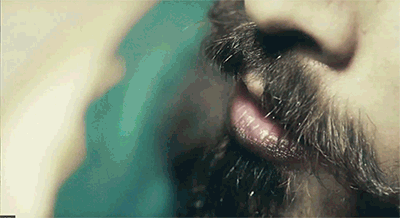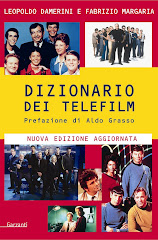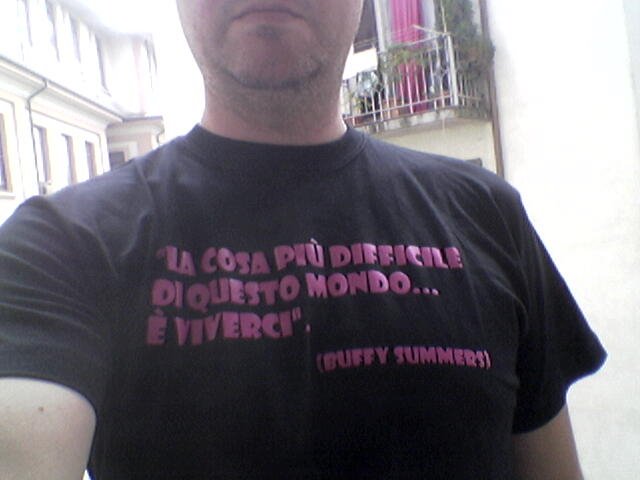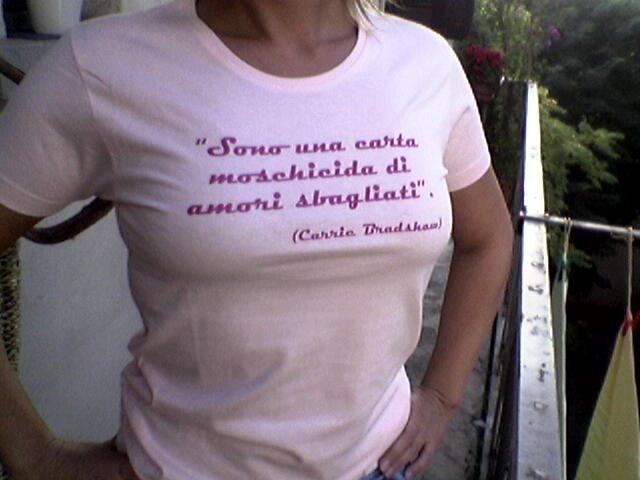Variety
Le lezioni sbagliate di "Game of Thrones"
Today’s Variety cover story and accompanying column go deep into the subject of TV’s rapid expansion — Cynthia Littleton and I delve into not just the amount of TV being made, but the increasing costs that are impacting the medium.
Throughout both of those pieces, “Game of Thrones” is mentioned many times. “Everybody wants their ‘Game of Thrones,’” one executive sighed as we reported this story.
It’s true: Those were the recent marching orders of Jeff Bezos, and chaos reigns at Amazon Studios as it tries to pivot to providing spectacle. We’ve already seen the arrival of a host of dramas employing dozens of burly, bearded guys who can wield heavy swords (and some of them, like “Vikings” and “Into the Badlands,” are actually good!). But many more that prioritize pyrotechnics and special effects are no doubt on their way, not just from Amazon, but all the other content providers now in the game.
The problem is, those trying to imitate “Game of Thrones” are taking all the wrong lessons from its origin story.
First off, “Game of Thrones” was not picked up straight to series. Every executive I spoke to winced when I brought up this frustrating trend. As one experienced showrunner put it, “You can make a good show without going through the pilot process. But it’s usually harder to do it that way.” The pilot process is far from perfect, but it allows everyone involved to assess what’s working and what’s not, and what can be recalibrated to make a show more effective. When a scripted program doesn’t pause after the pilot to figure out the best path forward, that rush-to-screen often drives up expenses, and storytelling mistakes are compounded.
Even “Game of Thrones” went through a rocky pilot process — the producers made two. The first attempt at a debut episode was more or less tossed out because certain characters weren’t quite working and some plot points were unclear. When the drama finally premiered in April 2011, major characters had been recast— Emilia Clarke was plucked almost straight out of drama school to replace Tamzin Merchant, and Michelle Fairley was not the actor originally cast as Caitlin Stark.
HBO officially put “Game of Thrones” into development in January 2007 — so the team went through four long years of development, notes, writing, more notes, re-writing, filming and extensive re-shoots. Benioff and Weiss, well-regarded screenwriters, had never made a TV show before, and have acknowledged they faced a tremendous learning curve.
None of this is to say that “Game of Thrones” is perfect. Dozens of critics, including myself, have spent a lot of time writing about what we’ve loved about the show — as well as what we’ve disliked about it. The show has flaws and blind spots, some of which have improved or evolved over time, some of which haven’t.
But now that giant dragons are aloft and a dead ice king is tossing around javelins, it’s easy to forget that the main reason for “GoT’s” success is the fact that it’s truly a character-based drama. Even minor players like Lady Mormont and Tormund caught on with fans because they are so specifically and memorably portrayed. Many of the greatest scenes in “Game of Thrones” history have consisted of quiet conversations between two fine actors — or one actor slaying a monologue, as Tyrion (Peter Dinklage) did during his Season 4 trial. People root for Dany and Tyrion and Brienne, and worry about Arya and Sam, because they care about them. That’s the show’s accomplishment, not the near-tripling of its initial episodic budget.
As it transitions into its final season, there’s been much chatter about how “Game of Thrones” will consist of essentially six feature films. But keep in mind that “Game of Thrones” is ending its run that way. The network and producers did not start out operating from the assumption — often expressed by Cersei Lannister, a fan of the for-hire Golden Company — that throwing money at a problem is the best way to solve it.
HBO didn’t just spend money to get it right. It spent a rarer commodity — time.
But cash is what’s flooding into the TV market now, not patience. Apple already has a TV budget of at least $1 billion. Disney, Time Warner, NBC Universal and CBS spent $36 billion on TV last year — a third more than just seven years ago. Hulu will part with $2.5 billion this year, which tops HBO’s annual $2 billion budget. Netflix is upping its ante to $7 billion in 2018. Amazon spent $4.5 billion this year. And now Facebook is jumping checkbook-first into the episodic fray, along with Google, Snapchat and YouTube.
All together, it’s a dizzying amount of money. But I truly wonder which of these companies will take their time with their shiny TV acquisitions.
Sure, some eye-popping plot points need to be drenched in dollars to stand out. But many of the most memorable TV scenes (including on “Game of Thrones”) are the product of great effort expended over days, weeks, months and years. Scenes that are written and re-written, rehearsed and worried over, passionately crafted and thoroughly thought through.
As Don Draper might say, “That’s what the money’s for.”













.jpg)
















Nessun commento:
Posta un commento